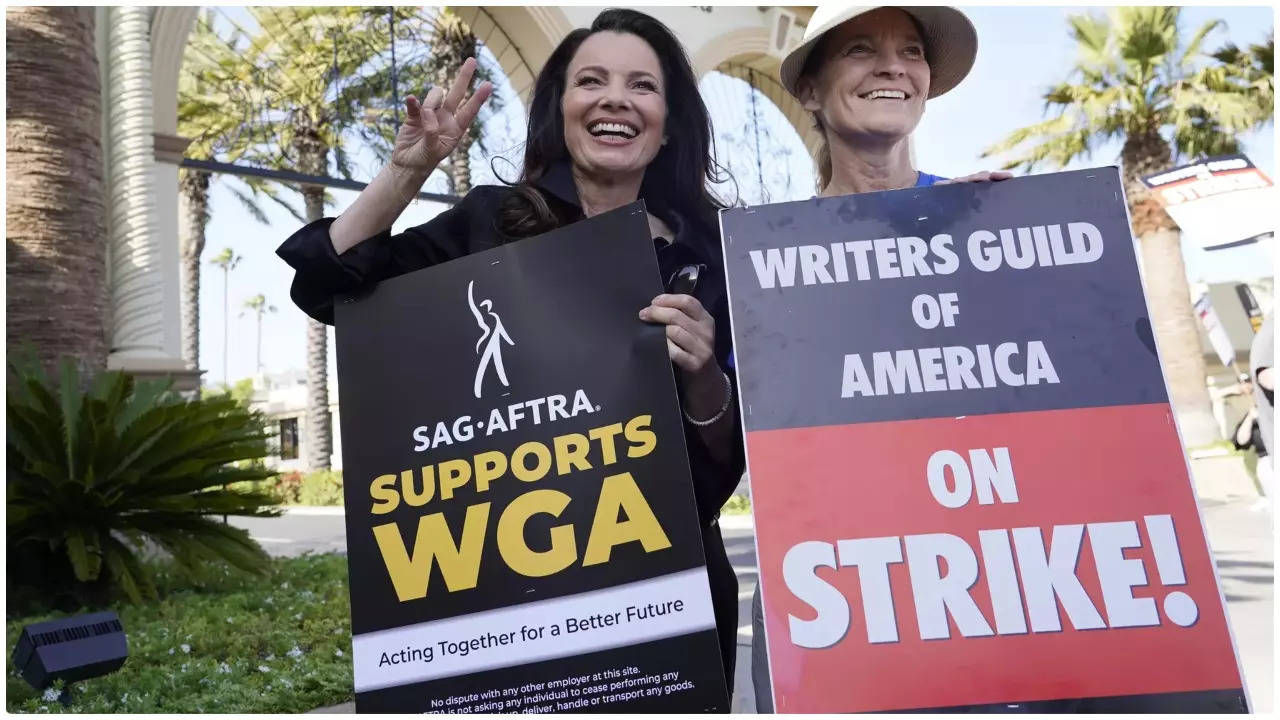[ad_1]
The Writers Guild is ending their 148-day-long strike, which halted the production of several TV shows and movies. The decision comes after the guild reached a tentative agreement with the Alliance of Motion Picture and Television Producers earlier this week, promising protection against artificial intelligence, and fairer pay, among other resolutions.
The three-year contract agreement was reached after five days of talks between the writers union and the studios last week. The union leadership has praised the agreement, stating that it comes with “meaningful gains and protections for writers in every sector of the membership.”
The new agreement prohibits the “exploitation of writers’ material to train AI.” Under the new terms, generative AI cannot be used to write or rewrite literary material, and anything it produces cannot be considered source material.
Writers can choose to use AI only if the company or studio consents to it, but studios cannot force writers to use AI software such as ChatGPT. Studios need to disclose if any part of the material is generated by AI before handing it over to a writer.
Aside from protection from artificial intelligence, writers are promised better pay and working conditions. They will now have higher pay, more contributions towards their pension and health, and increased payments and residuals for streaming projects. Foreign streaming residuals will be based on the number of subscribers for services available worldwide, while some domestic projects’ residuals will be based on the hours streamed by subscribers in the US.
While the writers’ strike comes to an end, the Screen Actors Guild-American Federation of Television and Radio Artists (SAG-AFTRA) is still on strike.
On Monday, members of SAG-AFTRA voted in favour of authorising a strike against the video game industry as well.
SAG-AFTRA has been negotiating on behalf of stunt performers, motion capture actors, and voice actors in video games. The union has also expressed concerns about how the implementation of AI technology could potentially undermine the creative work of its members.
The three-year contract agreement was reached after five days of talks between the writers union and the studios last week. The union leadership has praised the agreement, stating that it comes with “meaningful gains and protections for writers in every sector of the membership.”
The new agreement prohibits the “exploitation of writers’ material to train AI.” Under the new terms, generative AI cannot be used to write or rewrite literary material, and anything it produces cannot be considered source material.
Writers can choose to use AI only if the company or studio consents to it, but studios cannot force writers to use AI software such as ChatGPT. Studios need to disclose if any part of the material is generated by AI before handing it over to a writer.
Aside from protection from artificial intelligence, writers are promised better pay and working conditions. They will now have higher pay, more contributions towards their pension and health, and increased payments and residuals for streaming projects. Foreign streaming residuals will be based on the number of subscribers for services available worldwide, while some domestic projects’ residuals will be based on the hours streamed by subscribers in the US.
While the writers’ strike comes to an end, the Screen Actors Guild-American Federation of Television and Radio Artists (SAG-AFTRA) is still on strike.
On Monday, members of SAG-AFTRA voted in favour of authorising a strike against the video game industry as well.
SAG-AFTRA has been negotiating on behalf of stunt performers, motion capture actors, and voice actors in video games. The union has also expressed concerns about how the implementation of AI technology could potentially undermine the creative work of its members.
[ad_2]
Source link

